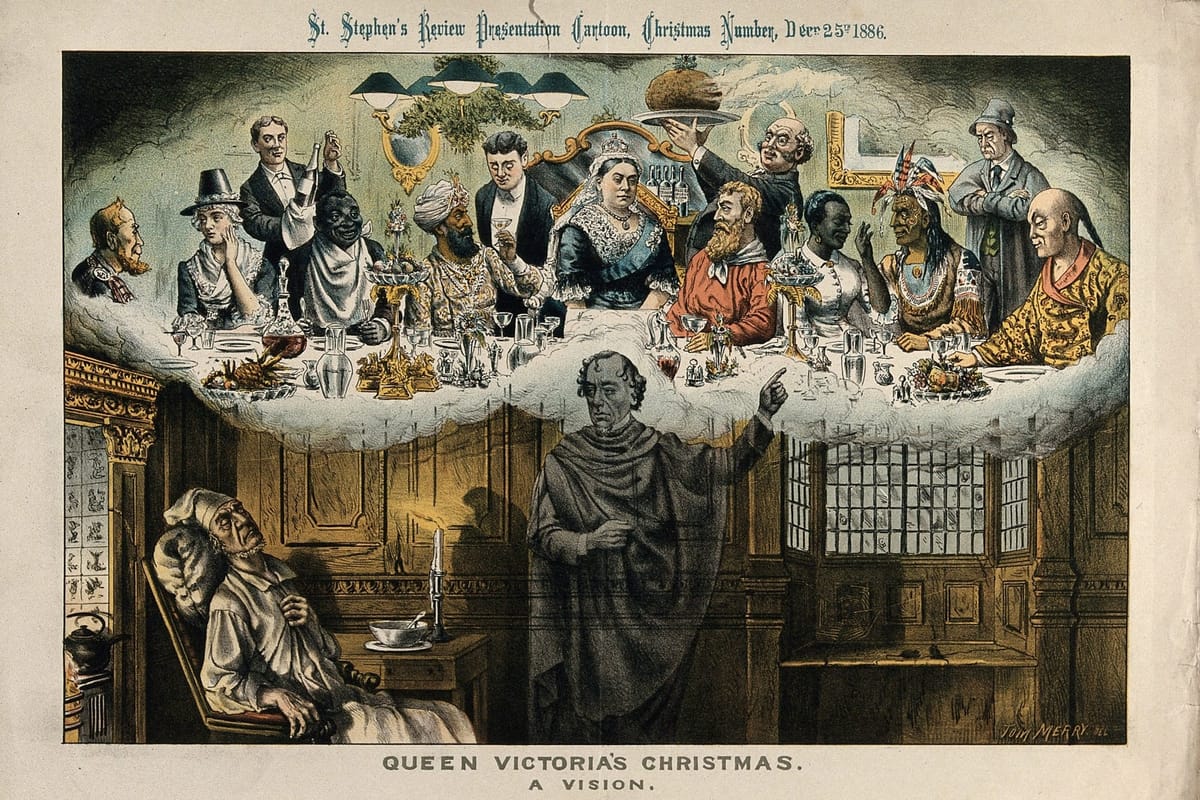Christmas Day
The word Christmas (Christ's Mass) was first used in England in 1038.

Key words
- Take shape: to start to develop a more clear or certain form
Our ideas are beginning to take shape.
- Victorian: from or relating to the period of British history during the rule of Queen Victoria (1837-1901)
Charles Dickens is one of the best-known Victorian novelists.
- Secular: not having any connection with religion
We live in an increasingly secular society, in which religion has less and less influence on our daily lives.
- Yule: in the past, a winter celebration held by Germanic peoples in the time before Christianity came to their countries (Christmas)
The tradition of bringing greenery into the house dates back to the pagan festival of Yule.
- Fidelity: the state of remaining loyal to someone and keeping the promises you made to that person
How important do you think fidelity is in a marriage?
Read the article to find the answers
- Where does the tradition of Christmas trees come from?
- Where did the tradition of Santa Claus come from?
- When was the word Christmas first used in England?
- What did the Romans celebrate on 25th December?
Queen Victoria
Christmas as we know it today began to take shape in the Victorian era with Queen Victoria and Prince Albert playing a major role. The Christmas tree, which Albert had brought from his native Germany, quickly became popular, as did the practice of decorating it with lights and presents. They also put presents in boxes and gave them to servants and tradesmen on the 26th of December, creating the tradition of 'Boxing Day'.
Many other Christmas traditions originated in this period, including Christmas cards, Christmas crackers and turkey. Even 'Santa Claus' and his reindeer sleigh first arrived from America in the Victorian era.
Most Victorian families went to church at Christmas and, inspired by Charles Dickens' famous story 'A Christmas Carol', wealthier people also gave gifts or Christmas feasts to poorer neighbours.
The Romans
Today, Christmas is more of a secular commercial event than a celebration of the birth of Jesus, with most people following Victorian traditions at home rather than going to church. And although the majority of Christians celebrate Christmas on the 25th of December, early Christians did not know when Jesus was actually born.
The name Christmas (Christ's Mass) was first recorded in England in 1038 when celebrations were a combination of the Roman festival of Saturnalia, and the Anglo-Saxon midwinter feast of Yule.
Before the Roman Empire adopted Christianity, they celebrated the rebirth of the Sun (Sol Invictus) on the 25th of December. This holiday not only marked the return of longer days after the winter solstice, but also followed the popular Roman festival of Saturnalia, during which people feasted and exchanged gifts. It was also the birthday of Mithra, a god of light and fidelity whose cult was becoming increasingly popular among Roman soldiers.
The Church in Rome began formally celebrating Christmas on the 25th of December, during the reign of Emperor Constantine. Constantine himself was a Sun-worshipper, but after becoming a Christian he had the difficult task of persuading other Romans to celebrate Christian festivals rather than pagan ones. He may have allowed the Romans to continue their celebrations on the 25th of December by combining the birth of the Sun with the birth of Jesus.
Discussion questions
- Do you have any questions about any of the vocabulary or grammar in this article?
- Do you celebrate Christmas?
- What is the biggest festival in your country?
- How did the Roman Empire influence your country?

Book a Lesson
Improve your English language communication skills by practicing with a qualified and experienced native speaker.





